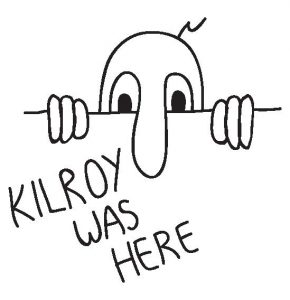Anachronism and Research in Memoir
 When writing a memoir, it’s important to ensure your recollections are accurate. Relatives will forgive the odd mistake, because they know you (and hopefully love you). If you’re writing for eventual publication however, you’d better be sure your references are true to the times you’re describing.
When writing a memoir, it’s important to ensure your recollections are accurate. Relatives will forgive the odd mistake, because they know you (and hopefully love you). If you’re writing for eventual publication however, you’d better be sure your references are true to the times you’re describing.
Disclaimers
Disclaimers can only go so far. Phrases like “The names have been changed to protect the innocent” or “based on a true story” can persuade the reader to expect a degree of departure from actual facts, but your facts should be as well-researched and accurate as you can make them, especially in autobiographies. Memoirs can have more flexibility and can even be fiction based on fact.
Anachronisms

Imagine your reader is cruising along, fully immersed in your story. Suddenly she trips over a description of something she knows doesn’t fit the historical period. It pulls her out of your narrative. For the next few paragraphs a good part of her mind is distracted, mulling over the discrepancy. It’s impossible to let it go.
You’ve probably run into this yourself. You trip over an anachronism or a word you don’t recognise and your mind automatically tries to make sense of it, to make it fit. Meanwhile, you keep reading, only to discover, two pages later, that you have absolutely no recollection of what you’ve read!
Here’s an extreme example:
If you’re describing the elaborate preparations your family made to stay safe during the cold war, and partway through your story your main character suddenly pulls out a cellphone, it’s going to jolt your reader out of the narrative flow. In addition, she’s going to be annoyed with you, the writer, for breaking her concentration and ruining her enjoyment of the nostalgia your story created.
As a writer, you have an obligation to provide a consistent experience to your reader, who begins a book or story with a certain set of expectations. It’s not fair to change the rules partway through. Unless your story is a fantasy or science fiction, where the rules are more flexible, readers expect a true-to-life story to be factual in all respects. And that includes everything about the time period you’re describing.
Short list of possible subjects that could trip you up:
- Politics
- News stories
- Television or radio shows
- Articles of clothing
- Technology
- Illnesses and medications
- Popular names
- Songs, books and movies
- Brand names such as Kleenex™
- and especially slang and figures of speech
![]()
Just for fun, I’ve added an internet story currently making the rounds. It’s full of slang phrases and terms that have virtually disappeared from our vocabulary. You may remember some (or all!) of them:
Heavens to Murgatroyd! Would you believe the spell checker did not recognize the word murgatroyd?
Lost words from our childhood:
Words gone as fast as the buggy whip! Sad really! The other day a not so elderly (65) lady said something to her son about driving a Jalopy and he looked at her quizzically and said what the heck is a Jalopy? OMG (new) phrase! He never heard of the word jalopy!! She knew she was old but not that old.
Well, I hope you are Hunky Dory after you read this and chuckle.
About a month ago, I illuminated some old expressions that have become obsolete because of the inexorable march of technology. These phrases included “Don’t touch that dial,” “Carbon copy,” “You sound like a broken record” and “Hung out to dry.”
Back in the olden days we had a lot of moxie. We’d put on our best bib and tucker to straighten up and fly right.
Heavens to Betsy! Gee whillikers! Jumping Jehoshaphat! Holy moley!
We were in like Flynn and living the life of Riley, and even a regular guy couldn’t accuse us of being a knucklehead, a nincompoop or a pill. Not for all the tea in China!
Back in the olden days, life used to be swell, but when’s the last time anything was swell?
Swell has gone the way of beehives, pageboys and the D.A.; of spats, knickers, fedoras, poodle skirts, saddle shoes and pedal pushers.
 Oh, my aching back. Kilroy was here, but he isn’t anymore.
Oh, my aching back. Kilroy was here, but he isn’t anymore.
We wake up from what surely has been just a short nap, and before we can say, well I’ll be a monkey’s uncle! or, This is a fine kettle of fish! we discover that the words we grew up with, the words that seemed omnipresent as oxygen, have vanished with scarcely a notice from our tongues and our pens and our keyboards.
Poof, go the words of our youth, the words we’ve left behind. We blink, and they’re gone. Where have all those phrases gone?
Long gone: Pshaw, The milkman did it. Hey! It’s your nickel.
Don’t forget to pull the chain. Knee high to a grasshopper.
Well, Fiddlesticks! Going like sixty. I’ll see you in the funny papers. Don’t take any wooden nickels.
It turns out there are more of these lost words and expressions than Carter has liver pills. This can be disturbing stuff !
We of a certain age have been blessed to live in changeful times. For a child each new word is like a shiny toy, a toy that has no age. We at the other end of the chronological arc have the advantage of remembering there are words that once did not exist and there were words that once strutted their hour upon the earthly stage and now are heard no more, except in our collective memory. It’s one of the greatest advantages of aging.
See ya later, alligator!

Happy Writing!

Beverley Hanna
Trained as an artist in the late 1960’s and early 1970’s, I was one of the first creatives to be employed in the computer graphics industry in Toronto during the early 1980’s. For several years, I exhibited my animal portraiture in Canada and the U.S. but when my parents needed care, I began writing as a way to stay close to them. I’ve been writing ever since. I run a highly successful local writer’s circle, teaching the craft and techniques of good writing. Many of my students have gone on to publish works of their own. I create courses aimed at seniors who wish to write memoirs, with a focus on the psychology of creatives and the alleviation of procrastination and writer's block.

2 Comments
Hillary Volk
What a fun post. I recalled every last expression you mentioned, so that makes me a ‘woman of a certain age.’ And I’m proud of it.
Love your site, Bev!
Beverley Hanna
Ain’t that the truth. I wouldn’t be twenty again if you paid me! (Though if someone could make my body young again, I wouldn’t object too strenuously.) I’ve worked hard to gain my “elder wisdom” and wouldn’t willingly give it up